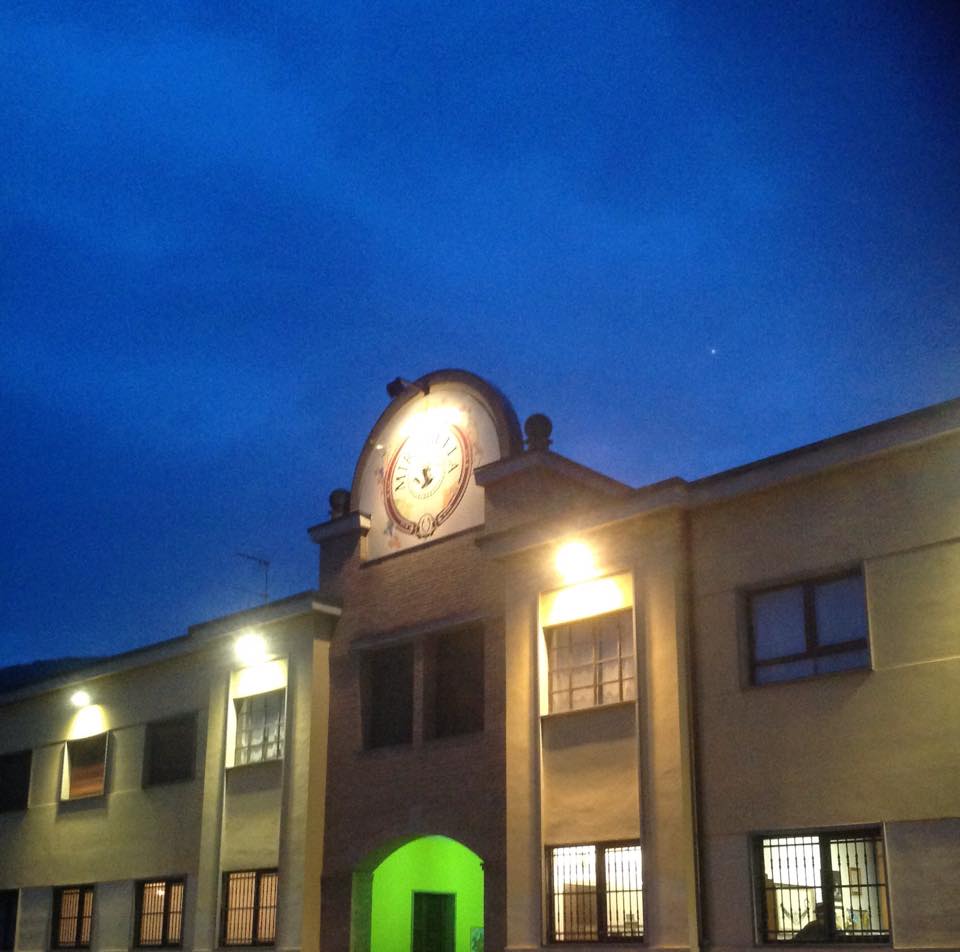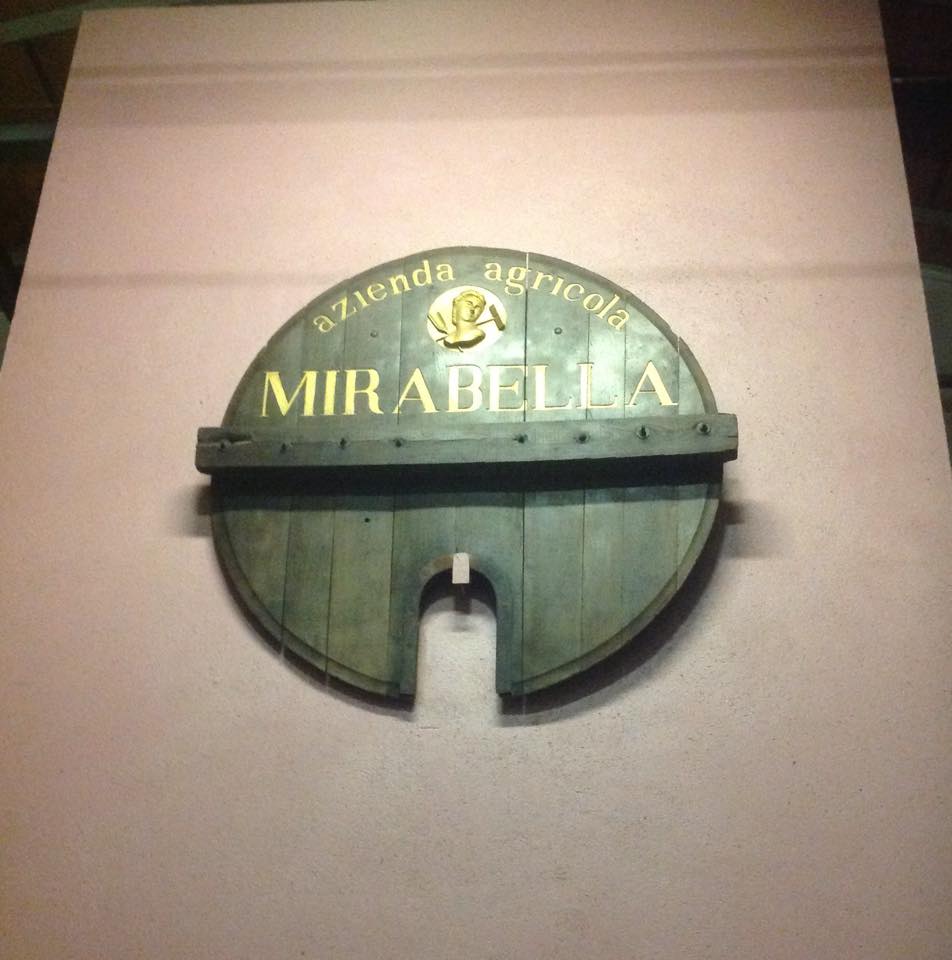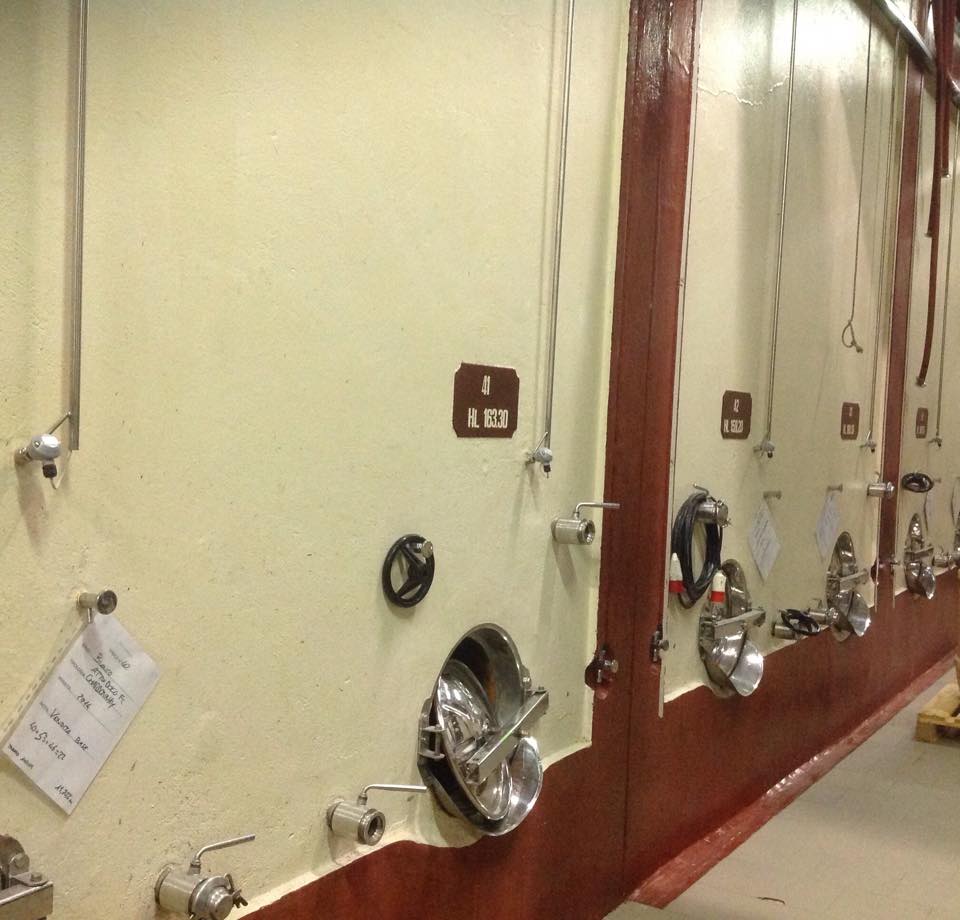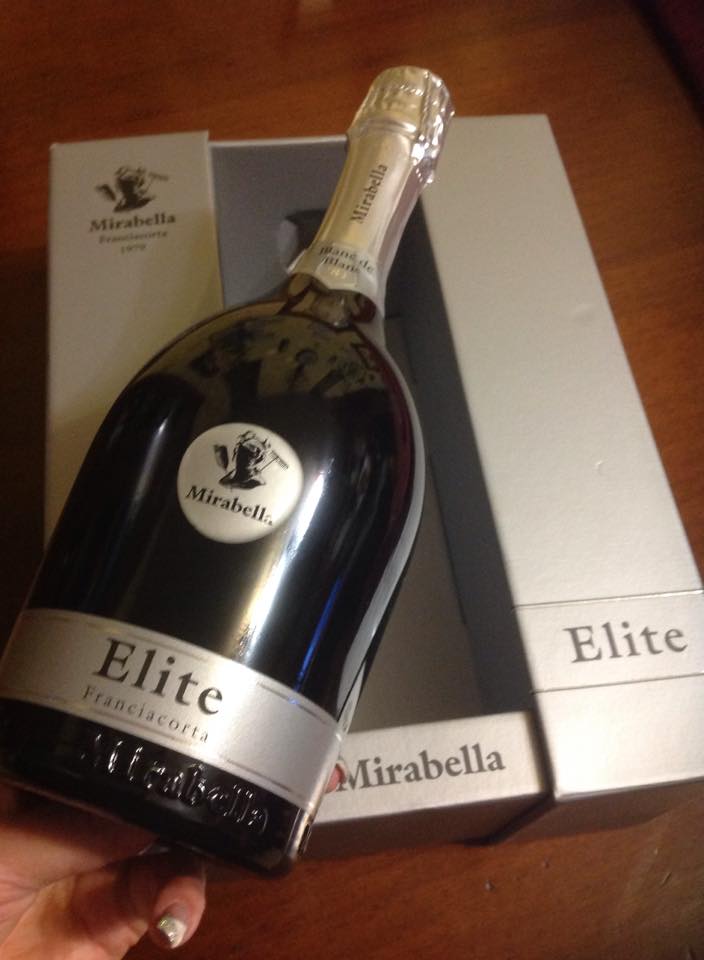An extract from plant natural that would replace the use of Sulfur. We talk about it?
I am convinced that reading the title of this article many of you will think the usual talk about the wines so-called natural, I would think it too. Write wine without added sulfur dioxide (SO2), whose antiseptic and antioxidant in a difficult season as this is considered to be decisive, certainly seem to more risky. I'm talking about a chemical additive used in many foods, when taken beyond permissible doses, has toxic effects on our health. A substance whose use requires attention, and that, consequently, imposes a continuous quest for a natural alternative. Joseph Sportelli of Amastuola, a farm of Taranto I recently visited, commented our discussion in this regard with a phrase that makes you think, because it is contained in the truth: “Cynthia, the secret is in the grapes”.
Within about.
A few weeks ago, during a lunch on the lake with a dear friend, my attention was caught by listening to a wine produced without the use of sulfur, or better, with the use of a stabilizer for the wine-making process based natural product from a farm free of chemical Quartino, and Svizzera. Few certain news, but in exchange for some useful contact deepen. From there began my research. I started contacting some friends manufacturers to see if they were aware. Except some isolated case, little information. I went with a few phone calls until you reach Alessandro Schiavi, oenologist and socio farm Mirabella Rodengo Saiano in Brescia. Within a few years this product is experimenting with a wine already on the market. Reached by telephone on the same evening I agreed to an appointment. Two days after, despite the bad weather, I went to see.
After explaining what had brought me to him, told me of his career oriented research practices, in the vineyard and in the cellar, environmentally and consumer. In company founded in 1979 where he is a member, uses energy from renewable sources (55 tons less carbon dioxide emitted annually). His experiments withEPYCA® di Biome, the product subject of my research, are made in collaboration with the University of Viticulture and Enology of Milan. The result is the production of "Elite"Extra brut, Franciacorta DOCG, the first Italian Classic Method without sulfites (lower 10 mg / liter, declaration limit) and allergens.
A rent the oral.
- Alessandro, how did you hear about this product that you're experiencing?
I became aware of Biome by a relative of our partner Giuseppe Guitar, a product that over the years has changed several names, now called EPYCA®. I tend to stress that the only product is not sufficient to obtain a good wine or sparkling wine, but must be linked to particular winemaking techniques as important.
- Explain to me what it is and how it acts?
It’ a set of polyphenols of vegetable origin extracted from grapes that interact with both the microbial metabolism of the wine in the various stages of processing, both with the components of exogenous oxidative (oxygen, peroxides, uv, etc..)
- In addition to using it with Elite, Your classic method Franciacorta already on the market, you said that you started his experiments with other wines. I want to talk?
As I said above EPYCA® is one of the components of the project Franciacorta “Elite” Extra Brut. I'm using EPYCA® red in a beautiful company of Bergamo on vintage wines 2104 Cabernet Sauvignon and Merlot that I parallel is vinified in stainless steel tanks in wooden barrels 500 liters. The results are interesting despite the vintage 2014 was very complicated in terms of health and oxidizability of grapes and wine. The ideal would be to organize a tasting, because “the wines speak for themselves”.
- There is much talk of natural wines. What are the major differences with your wines?
The wines that I'm experiencing are not well classified in the families of bio, Natural, etc.. (my wines are subject to far more narrow parameters of an organic wine). The goal is to get the products linked and easily identifiable with their territory and with the style of the company that produces them, very carefully to a respectful treatment of vineyards without “burdening” the land and the environment in which we live (the chemical additions from this point of view change these parameters). Vinifications aware and managed by people who know and observe carefully the surrounding environment (this is the most sensitive parameter: collaborate with the very precise and attentive to all the signs of nature). Wines that without the addition of allergens can be consumed by anyone, because healthy, typical and well-storable.
I take the word but the revision now to Maurizio De Simone, a winemaker who is devoting his life to historical research for the Protection of the Italian wine heritage unique climatic diversity and number of native vines. His dream is to produce wines intact and stable without the use of the use of sulfur dioxide. For some years, after meeting Biome, began to experience their natural adjuvants for controlling antiseptic and antioxidative food. A Swiss biotechnology company that in the early 2000 began studying molecules of plant origin up to put on the market a grape seed extract grape and vegetable proteins, that added to wine in place of sulfur dioxide, not only allowed to have wine microbiologically healthy, but also stable with respect to oxidation, and especially without the devastating interference organoleptic sulphites.
- Maurizio, can you tell us your experience after this trial?
For a few years can be found on the market wines without added sulfites, but often tasting are highly oxidized, and sometimes with incipient microbial defects that invalidate the organoleptic characteristics. Given that small amounts of sulfur are produced by yeasts during fermentation, threshold 10 mg / lt of law guarantees the near certainty that below this limit to a wine was not added this gas. In recent years I have had the opportunity to follow winemaking at many private cellars in Italy, Switzerland, France, Portugal, California e Australia, as well as independent bodies such as the University of Bordeaux and the research institute for the Rosé de Provence. In all cases it was shown that the wines produced without the addition of sulfur were naturally more stable than the conventional parallel, with lower levels of volatile acidity, and in the red, shades of purple color tends to be more intense and stable over time.
All wines appear to be significantly different in the aspect organoleptic, because the sulfur dioxide is a 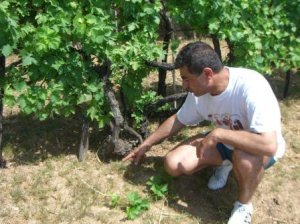 strong characteristic peculiarities smell buds, and in the absence of it, the usual parameters of recognition are called into question. This speech regardless looking healthy, that in wine is substantially negligible compared to other foods where concentrations of sulfites are considerably higher. One that opens new and unpredictable scenarios is that a wine without added sulfur expresses different characters, many times due to the scents of grapes starting, and this could call into question all of the encoded so far from scientific bodies and organizations of taste, not to mention the aspects of communication and advertising that revolve around this fantastic world.
strong characteristic peculiarities smell buds, and in the absence of it, the usual parameters of recognition are called into question. This speech regardless looking healthy, that in wine is substantially negligible compared to other foods where concentrations of sulfites are considerably higher. One that opens new and unpredictable scenarios is that a wine without added sulfur expresses different characters, many times due to the scents of grapes starting, and this could call into question all of the encoded so far from scientific bodies and organizations of taste, not to mention the aspects of communication and advertising that revolve around this fantastic world.
Currently many wineries follow my winemaking protocols that are to replace the use of sulfur dioxide with these adjuvants. The vast majority of them have a line dedicated to wines produced without added sulfites that are particularly appreciated in the markets of Northern Europe and the Anglo-Saxon. This technique allows you to have bottled wines that do not exceed the 10 mg / lt of Total Sulfur, limit beyond which is compulsory written on the label "contains sulfites". One aspect that surprised me is that this technique, applicable to the vast majority of types of wine, if it is linked to an ethical sensitivity of production, favors the origin of wines healthier and less invasive health.
Maurizio De Simone – Pro.Vit.E. Company professionals viticultural and oenological – Montalcino (YES)
I take the word.
Ended our chat, after returning home, I started to undertake further research on Biome, chemical-free company located in Ticino born in 199 0. As always I need to speak directly with the people concerned. The Scientific Director Elio Bortoli together with the Chief Operating Officer Moreno Buzzini have answered my questions.
- Biome, a biotech company that research, develops and manufactures of food additives to allow the total replacement of chemical preservatives added; in the case of wine of sulfur, and in the case of cold cuts of nitrites and nitrates. What are the results so far obtained?
It’ Importantly Biome is integrated in the normal processes of food processing without disturbing the normal stages of traditional production: there is no need to revise and revolutionize the production with the help of major investments in new machinery and / or distorting its production processes.
In 1992 we vinified the first time with version 1.0 current EPYCA®, and further, the road to this day has been full of great achievements. Today we are able to offer to those who intend to make wine without the use of added sulfites EPYCA®, a product line for red wines, white and rosé, bubbles and sweet, with the possibility of halting the malolactic fermentation.
- I came to you looking for a product extracted from plant matrices quite natural that would replace the use of sulphites in wine with the same results: EPYCA®. What is it exactly?
EPYCA® is the result of a long research work which was crowned by a study funded by the European Community through the project SULPHREE (sulphite-free organic additives to be used in wine-making-process). E 'consists of sottomolecole of tannins extracted from grape seeds prepared in different formulations to be used at different stages of vinification and the type of wine.
- The results that you got with the project SULPHREE have been verified by a body search?
The project SULPHREE, implemented by a consortium in which there were biome function of R&D with the support of other research centers, in particular the University of Portsmouth through its scientific director of the department of Food Professor Ferranti and his assistants, along with wineries EU, scored more than positive results. All applications / vinifications made have always been followed directly by researchers and winemakers through analysis that confirmed firstly the absence of added sulfites, but also highlighting the organoleptic characteristics positively evolved.
- Let's talk about costs. How much does the use of your product compared to Sulphur?
We are comparing an extremely valuable and said for years that essentially however is a "waste of industrial production", and therefore with low costs of, with a completely innovative, young and technologically advanced, which requires an investment by producers of wine. It 'important to note, however, that all the producers who have used EPYCA®, still managed to reposition the product to market with new labels, and of course with the higher prices that absolutely justify the final product quality wine. Repositioning, especially as regards the costs, allows you to fully repay the use of EPYCA® with multiples from 3 a 5 times than investing. There is also for the winemakers the opportunity to enter the market with a new product, quality, healthy and that can meet the growing market of people intolerant to sulfites.
I conclude.
I published this article in hopes of spreading a message that can serve as a stimulus to people like me, loves everything leads back to nature and the environment. As I often say, my attempts are comparable to the stone-throwing water: circles that form around depend on the interest of people towards these issues. The question that I sometimes feel put and that makes me smile is why I do all this. The answer is simple: because I believe.
Acknowledgements:
George Arriola's Restaurant Ai Frati, Fleece Marone (BS) - Elio Ghisalberti, wine journalist – Marco Derelli of Salumeria Derelli (BS) - Roberto Rigoni, Motto Cantina della Torre, Castione Switzerland - Alessandro Schiavi dell'Az. Agricola Mirabella, Rodengo Saiano (BS) – Maurizio De Simone, oenologist – Elio Bortoli and Moreno Buzzini of Biome Chemical Free Products, Quartino Switzerland – Joseph Sportelli dell'Az. Agricola Amastuola, Massafra (OF)
